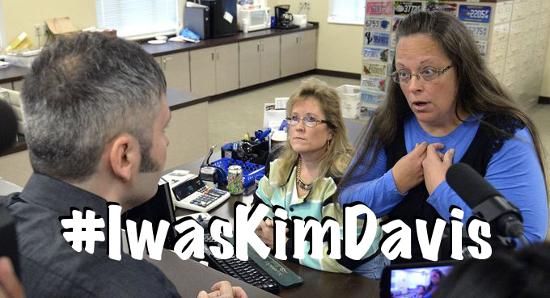 This is the fourth post in a series called: “This Collar Is Too Tight: Heresies From a Southern Minister.” You can read the first post here. The short explanation of this series is this: the institutionalized Church spends a lot of time defining who’s in and who’s out. Biblically, I find that a lot of the “measures” used don’t hold up. I’m making the argument for a larger acceptance of theological diversity in the Christian Church.
This is the fourth post in a series called: “This Collar Is Too Tight: Heresies From a Southern Minister.” You can read the first post here. The short explanation of this series is this: the institutionalized Church spends a lot of time defining who’s in and who’s out. Biblically, I find that a lot of the “measures” used don’t hold up. I’m making the argument for a larger acceptance of theological diversity in the Christian Church.
Every Sunday of the year, in churches around the world, there is an odd confession being made that’s simply not biblical.
It’s found in the Apostle’s Creed and I have problems with it in multiple ways.
In speaking of Jesus, the creed says that after his death “he descended into Hell.”
Most folks who use this as a confession, as a statement of their beliefs, understand it to mean that during the three days between his death on the cross and his resurrection, Jesus took a little road trip to Hell.
You know, “Hell”: a place of fire and brimstone where sinners are doomed to an eternity of suffering and torment.
My primary issue with this is that it is not biblical – in two ways.
The first is that the Bible gives us very little information about what happened during those three days to Jesus and what it does give us is not specific enough to definitively say Jesus went to Hell.
Why I believe the few verses we do have about those three days (like Acts 2:31) don’t definitively say Jesus went to Hell is actually my second issue with the confession that Jesus “descended into Hell.”:
Both the word used in Acts 2:31 and the concept of that day and age about the afterlife have nothing to do with our modern construct of Hell, which borrows from Dante’s seventh circle.
(Good news for those who truly believe I’m a heretic: there’s a special circle of Dante’s Hell reserved for people like me!)
The word used in the Acts verse is actually the Greek word hadēs and it just doesn’t mean Hell the way we think of it.
It simply couldn’t have.
Hadēs is a place of the dead – all the dead. It is not a place of damnation. It’s just where you go when you are dead. It’s the equivalent of the Hebrew word sheol: the abode of the dead.
It’s part of why I don’t believe in the modern construct of Hell.
Once the wording “he descended into Hell” finally made it into the Apostle’s Creed (that’s right, it wasn’t in the original), the word used was hadēs. The point they were trying to make was that Jesus was really and truly dead. So much so, he went to the place dead people go.
See? He is dead.
And on “the third day he arose again from the dead.”
That’s the point: he was dead.
As dead as dead gets.
And then he wasn’t.
I don’t believe in Hell, and any confession that requires me to believe that Dante’s Hell is not only real but that Jesus went there (even though the Bible not only says very little about it, but it also couldn’t have actually said anything about Dante’s Hell) is not a confession that I care to confess.
There are those who say, “Well you can understand the ‘Hell’ in the creed to mean whatever you want – just think of it as a place of the dead.”
And I agree – but there’s a lot of church folk who don’t agree.
For them, if you don’t understand Hell to mean a place of eternal damnation and torment, you can’t be Christian.
If you want to confess it, I say, good for you.
If it connects you to those who have confessed these things before you, and if that nurtures your faith, great.
I just don’t think that’s a good enough reason to require me to confess it if I want you to consider me a Christian.
Christianity should be big enough for a lot of varying perspectives on this.
I can promise you, God is big enough for it.
Part 5 in this series: “The Tradition a Heretic Values”
Consider supporting Mark’s blogging. Help create a market for Progressive Christianity. Not through big publishers or big denominations, but through the grassroots. We need to encourage the growth of progressive Christian voices in the marketplace. Even a dollar will help.
Facebook continues to make it increasingly difficult for me to let you know about new blog posts like this. Please consider signing up for my mailing list where we can insure you are notified. Just click here!
Mark is a co-founder of The Christian Left. Come and join the conversation!












